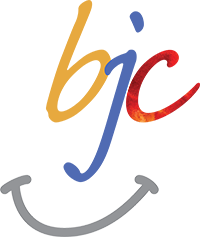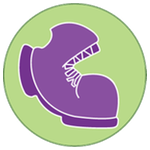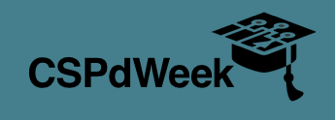
C-START Colorado - Strategic Approach to Rally Teachers
Mission: To improve computer science education in Colorado
When compared to national numbers, it’s clear that Colorado is in desperate need of more teachers who have the ability to offer rigorous, engaging computer science courses.
See what Colorado teachers said about summer 2020 CSTART/CSPdWeek courses!
See what Tim Gisell, former software engineer and current HS teacher, says about Teacher Field Study.
Read more testimonials at the Mines Newsroom
- 1 credit = $1,114
- 3 credits = $3,168
- Apply to be a Mines graduate non-degree seeking student
- Register for your courses
Please contact the C-START Team at cstart@mines.edu with any questions or for more information.
CSCI102 INTRO TO PROGRAMMING LAB (1.0 credits)
This course is a 1-credit hour optional lab course for CSCI 101 that offers an opportunity for new programmers to learn the Python programming language. Python is a powerful interpreted programming language with a simple syntax and a large set of libraries. While Python is an easy language for beginner programmers to learn, it is a language that is widely used in many scientific areas (e.g., data science). This lab course will introduce students to basic programming concepts: conditionals, loops, lists, strings, file input/output, functions, and objects.
CSCI261 PROGRAMMING CONCEPTS (3.0 credits)
This course introduces fundamental computer programming concepts using a high-level language and a modern development environment. Programming skills include sequential, selection, and repetition control structures, functions, input and output, primitive data types, basic data structures including arrays and pointers, objects, and classes. Software engineering skills include problem solving, program design, and debugging practices. Prerequisite: CSCI101.
CSCI262 DATA STRUCTURES (3.0 credits)
Defining and using data structures such as linked lists, stacks, queues, binary trees, binary heap, and hash tables. Introduction to algorithm analysis, with emphasis on sorting and search routines. Language skills: abstract data types, templates, and inheritance. 3 hours lecture; 3 semester hours. Prerequisite: CSCI261 with a grade of C- or higher.
CSCI303 INTRODUCTION TO DATA SCIENCE 3.0 (3.0 credits)
This course will teach students the core skills needed for gathering, cleaning, organizing, analyzing, interpreting, and visualizing data. Students will learn basic SQL for working with databases, basic Python programming for data manipulation, and the use and application of statistical and machine learning toolkits for data analysis. The course will be primarily focused on applications, with an emphasis on working with real (non-synthetic) datasets. Prerequisite: CSCI101 or CSCI102 or CSCI261.
CSCI398 TEACHER FIELD STUDY (3.0 credits)
An adaption of CSCI370 ADVANCED SOFTWARE ENGINEERING
May 16 - June 24
We will work with a cohort of 3-5 teachers on a special education-related software project. This capstone course has three primary goals: (1) to enable students to apply their course work knowledge to a challenging applied problem for a real client, (2) to enhance students' verbal and written communication skills, and (3) to provide an introduction to ethical decision making in computer science. Ethics and communication skills are emphasized in a classroom setting. The client work is done in small teams, either on campus or at the client site. Faculty advisors provide guidance related to the software engineering process, which is similar to Scrum. By the end of the course students must have a finished product with appropriate documentation. Prerequisite: CSCI306 or instructor approval. 13.5 hours lab; 3.0 semester hours.
Video of 2020 Teacher Field Study TeachersComputer Science Principles Workshops
Colorado School of Mines will be hosting a weekly workshop from 8 - 10am every Saturday in 2016 starting September 10th and ending November 19th. We will be covering the Code.org CSP curriculum during this time.
Mines Campus, Marquez Hall Room 222 *
* All sessions will be held in Marquez Hall Room 222 EXCEPT for the session on November 12th which will be held in Marquez Hall Room 322
Contact cstart@mines.edu with questions.
There is no need to register in advance for these sessions, attend as many as you can!
Tentative Schedule:
- September
- 10th: Unit 2 lessons 1-3
- 17th: Unit 2 lessons 4-5
- 24th: Unit 2 lessons 5
- October
- 1st: Unit 2 lessons 7-10
- 8th: Unit 2 lessons 11-12
- 15th: Unit 2 lessons 13-14
- 22nd: Unit 3 lessons 1-3
- 29th: Unit 3 lessons 4-6
- November
- 5th: Unit 3 lessons 7-9
- 12th: Unit 3 lessons 10 (* In Marquez Hall 322)
- 19th: TBD
Summer Professional Development: Scratch and Python
June 14-16, Workshop 9 am - 4 pm
Mines Campus, Brown Building 253
Continental Breakfast 8:30 am, Brown Building 210W
Each day of the workshop will increase in proficiency; those new to computing should, therefore, plan to attend Day 1.
June 14
Day One: Scratch
Complete the following before attending:
Post Materials for Scratch:
Goals/Objectives:
- Understand program flow
- Learn basic programing practices
- Begin to develop Scratch portfolio
Agenda:
- Morning Session Marching Orders Activity
- Understand what a computer program is.
- Explore pair programming through development of a fun game.
- 12 - 1 PM: Break for Lunch
- Afternoon Session Tower Defense
- Explore incremental development and larger projects in Scratch.
- Learn how code challenges can help expand student growth in computer science.
June 15
Day Two: Basic Python
Complete the following before attending:
Post Materials for Basic Python:
Goals/Objectives:
- Understand Python program structure
- Create simple programs using if/loops/functions
- Practice reading, explaining, and debugging programs
Agenda:
- Morning Session Rock, Paper, Scissors
- Explore incremental development and nested conditions
- Learn about objects and design methodologies
- 12 - 1 PM: Break for Lunch
- Afternoon Session Guessing Numbers
- Trace programs to find bugs
- Write and explain more complex programs
June 16
Day Three: Intermediate Python
Complete the following before attending:
Post Materials for Intermediate Python:
Goals/Objectives:
- Practice working with file input/output
- Gain exposure to algorithmic problem solving
- Understand the uses of different data structures
Agenda:
- Morning Session Hangman
- Explore data structures and reinforce functions via scaffolded programs
- Use props to design a bin sorting program
- 12 - 1 PM: Break for Lunch
- Afternoon Session Python Bat
- Investigate types of errors, debugging practice and fun logic puzzles
- Build a text-based game and simple AI
Summer Professional Development: Web Programming
August 3-5, Continental Breakfast 8:30, Workshop 9 am - 4 pm
Mines Campus, Marquez Hall 022
Each day of the workshop will increase in proficiency; those new to computing should, therefore, plan to attend Day 1.
SURVEYAugust 3
Day One: HTML and CSS
Complete the following before attending:
Day One Workshop Materials
Goals/Objectives:
- Learn the basics of HTML and CSS
- Build an Outline of a Course Webpage
Agenda:
- Morning Session
- Basic HTML
- Tags
- Images
- 12 - 1 PM: Break for Lunch
- Afternoon Session
- Intro to CSS
- Fonts and Colors
- CSS Classes
- Links
August 4
Day Two: Intro JavaScript
Complete the following before attending:
Day Two Workshop Materials
Goals/Objectives:
- Combine JavaScript with HTML/CSS to create simple responsive web applications
Agenda:
- Morning Session
- Borders, Margins, and Padding
- Document Object Model
- 12 - 1 PM: Break for Lunch
- Afternoon Session
- JavaScript Events
August 5
Day Three: JavaScript
Complete the following before attending:
Day Three Workshop Materials
Goals/Objectives:
- Create simple web games
Agenda:
- Morning Session
- Scaffolding
- Programming Logic
- JavaScript Canvas
- 12 - 1 PM: Break for Lunch
- Afternoon Session
- Project Based Learning
- Recursion
Day Three: JavaScript Processing - Advanced
Complete the following before attending:
Goals/Objectives:
- Gain a basic understanding of the javascript library p5.js
- Build a fun, visual game
Agenda:
- Morning Session
- Intro to Processing
- Begin agar.io game
- 12 - 1 PM: Break for Lunch
- Afternoon Session
- Finish agar.io game
Snap! Summer Professional Development Workshop
June 27th - 29th 2017, 9 am - 4 pm (includes lunch)
For any K-12 teacher interested
Mines Campus
Contact cstart@mines.edu with questions.
Register NowSnap! is a visual, drag-and-drop programming language that is suitable for a serious introduction to computer science in middle and high schools. If you would like to introduce students to programming, then come learn the basics of Snap! Also, if you are doing the BJC training and are new to programming, then this workshop is recommended; that is, this workshop will help you with some of the work you need to complete prior to the in-person week of professional development.
Python Summer Professional Development Workshop
July 6th - 8th 2017, 9 am - 4 pm
For any K-12 teacher interested
Mines Campus
Contact cstart@mines.edu with questions.
Register NowPython is a high-level general purpose programming language that is easy to learn, making it suitable for an introductory programming course. This workshop will teach the fundamentals of programming as well as the advanced features on Python. Participants are encouraged to attend at least July 6-7th, with July 8th as an option for those who want to delve deeper.
Python Summer Professional Development Workshop
July 31st & Aug 1st - 2nd 2017, 9 am - 4 pm
For any K-12 teacher interested
Mines Campus
Contact cstart@mines.edu with questions.
Register NowPython is a high-level general purpose programming language that is easy to learn, making it suitable for an introductory programming course. This workshop will teach the fundamentals of programming as well as the advanced features on Python. Participants are encouraged to attend at least July 31st/Aug 1st, with Aug 2nd as an option for those who want to delve deeper.
Computer Science... what's the big idea?
July 12th - 13th 2017, 9 am - 3 pm (includes lunch)
For any K-12 teacher interested
Mines Campus
Contact cstart@mines.edu with questions.
Register NowWhen teaching computer science (CS) topics, it can be too easy to miss the wood for the trees. Why do students need to know how to "code"? Why do we teach them how to work with binary numbers? What's the purpose of learning bubblesort and quicksort? This workshop will look at a list of 10 "big ideas" of computer science that have been distilled based on input from curriculum designers and CS experts around the world, and they will be presented in a fun and engaging way. Teachers will then be able to relate the 10 "big ideas" to various topics they teach in computer science to the context of a bigger picture. We will explore the big ideas using examples of teaching activities, particularly from the "CS Unplugged" project that Tim leads. Even if you are new to computer science and want to know "what's the big idea", you will learn useful topics for the courses you teach. Bringing your own device will be very useful, but there will be options available if that's not possible.
Note: Workshop leader is Tim Bell, the creator of CS Unplugged.Computational Thinking and Music Education
July 14th 2017, 9 am - 3 pm (includes lunch)
For elementary and middle school teachers
Mines Campus
Contact cstart@mines.edu with questions.
Register NowComputational thinking (CT) applies to subjects outside computer science, and music is no exception. CT ideas such as decomposition, patterns, abstraction and algorithms can all be exercised in a meaningful way while at the same time engaging students with key concepts from music. This workshop will present ideas for having students exercise ideas from music while at the same time developing skills relating to CT. The session will assume an interest in music, but not necessarily specialist knowledge of music theory - you'll get to explore that via computational thinking! If you have a laptop and headphones, please bring them. Bringing your own device will be very useful, but there will be options available if that's not possible.
Beauty & Joy of Computing (BJC): an AP CS Principles course
July 24th - 28th 2017 (face to face workshop)
For high school teachers planning to teach CSP
Contact Tracy Camp (tcamp@mines.edu) for more details.
- Pre-Workshop: Online course at your own pace
- Workshop: One week of face-to-face training locally with a BJC Mentor
- Post-Workshop: Complete any online course work. Additional year-round support and small-group mentoring will be provided!
Motivation
Colorado K-12 students need ample opportunities to develop skills and interest in computing, especially since the computing job sector is growing, satisfying, and well-paying. In addition, these opportunities need to be available for all students.
Alas, women and minorities are underrepresented in the demographics of students who take the AP CS A Exam at both the national and state levels. Here in Colorado, only about 15% of students who take the AP CS A Exam are women (compared to 20% at the National level). Also, while approximately 33% of high school students in Colorado are Hispanic/Latino, only about 7% of the AP CS A Exam takers are Hispanic/Latino. The lack of engaging computer science courses for women and minorities in Colorado's high schools needs to be addressed.
Objectives
C-START aims to:- Build local capability for teaching computer science courses
- In-service professional development
- Support teachers as they gain confidence to teach new computer science courses
- Mines CS Students are offered a Service Learning Course which pairs them with a local HS CS teacher
- Create a strong and active community among K-12 teachers/administrators and university faculty
- Computer Science Teachers Association (CSTA)
- Establish a tiered mentoring program for high school teachers
- Broaden participation of underrepresented groups in computing
- Understand best practices for engaging women and Hispanic youth
- Increase computational thinking skills of high school teachers
- Pre-service educational technology course at University of Northern Colorado
- Create infrastructure to develop future teachers of computer science courses
- Investigating creating a state endorsed certificate in CS
- Sustain the CS professional development opportunities after the grant period ends
- Disseminate our lessons learned
Individual Participants
| Investigators | Title and Affiliation | Expertise for C-START |
|---|---|---|
| Tracy Camp | Professor of CS at CSM | Computer Science and K-12 STEM Education |
| Cyndi Rader | Teaching Professor of CS at CSM | Computer Science and K-12 STEM Education |
| Christy Moroye | Associate Professor at UNC | Curriculum Studies and Teacher Education |
| Lead Teachers | ||
| Kyle Gillette | CS Teacher at Lakewood HS | High School CS Education |
| Charles Powell | CS Teacher at Green Mountain HS | High School CS Education |
| Advisory Board | ||
| Susanne Hambrusch | Professor of CS at Purdue University | STEM Education, High School Professional Development for CS |
| Clayton Lewis | Professor of CS at CU, Boulder | Computational Thinking, High School Outreach Projects |
| Lori Pollock | Professor of CS at Univ. of Delaware | Service Learning, PI of Partner4CS project, High School Professional Development for CS |
| Enrico Pontelli | Regents Professor at NMSU | Lead for K-12 Initiatives in Computing Alliance of Hispanic Serving Institutions (CAHSI) |
| Lucy Sanders | CEO and Co-Founder of NCWIT | Increasing Gender Diversity in Computing |
| Lissa Clayborn | Acting Executive Director of CSTA | K-12 CS Education and CSTA Activities |
| Other Personnel | ||
| Heather Thiry | External Evaluator, Golden Evaluation & Policy Research | Evaluation on the under-representation of women and minorities in STEM disciplines |
| Nancy Sileo | Assistant Dean at UNC | Professor of Early Childhood Education |
Expected Outcomes
Current Secondary Teachers (In-Service); New Secondary Teachers (Pre-Service)
Improved CS Content Knowledge
Increased Confidence in Teaching CS
Positive Change in Teacher's Attitudes Toward CS
Increased Knowledge in Engaging Underrepresented Students in CS
CS and Math Undergraduates
Improved Confidence in CS Content Knowledge
Increased Engagement in Computing
Increased Interest in Future Teaching
Increased Knowledge in Engaging Underrepresented Students in CS
Colorado Secondary Schools
Increased Number Offering CS Courses
Increased Number of Students Taking CS Courses
Increased Diversity in CS Classes
Increased Number of Students Taking AP CS A Exam
Secondary Students (expected outcomes not to be evaluated)
Increased Computational Thinking Ability
Increased Ability to Pass New AP CSP and Current CS A Exams
Increased Enthusiasm in CS and Careers in CS
Increased Diversity in CS Classes
The Plan (Logic Model)
- Lack of CS Education in K-12
- Lack of Females and Minorities in Computing
- Lots of Employment Opportunities
- Teacher Interviews
- Attitude Surveys
- Content Assessments
- Course Statistics
- Pedagogical Knowledge of Engaging Diverse Populations in Computing
- Resources for Engaging CS Courses in Secondary Schools
- Motivated Graduate and Undergraduate Students
- Expertise in Evaluation
- Current Secondary School Teachers
- Future Secondary School Teachers
- Undergraduate Students
- Secondary School Students
- Recruit and Train Teachers in CS Content, Pedagogy, and BPC (pre-service and in-service)
- Offer New CS Teachers Support
- Create Academic Certificates for CS
- Augment Pre-Service Requirement with Computational Thinking
- Re-Energize the CSTA Chapter
- Establish a Network and Community of Teachers
- Evaluate Student and Teacher Outcomes
- Disseminate Lessons Learned
Planning, Evaluation, and Dissemination of C-START
Improved CS Education in Colorado!
Teachers
- Increased CS Content Knowledge
- Increased Confidence in Teaching CS Courses
- Increased Interest in CS
- Increased Understanding of Engaging Diverse K-12 Students in Computing
- Increased Confidence in CS Content Knowledge
- Increased Engagement in Computing
- Increased Interest in Teaching
- Increased Understanding of Engaging Diverse K-12 Students in Computing
- Increased Number of Schools Offering CS Courses
- Increased Enrollment in CS Courses (esp. underrepresented students)
- Increased Number of Students Taking the AP CS A Exam

National Science Foundation
This material is based upon work supported by the National Science Foundation under Grant No. #CNS-1543231.
Any opinions, findings, and conclusions or recommendations expressed in this material are those of the author(s) and do not necessarily reflect the views of the National Science Foundation.

















